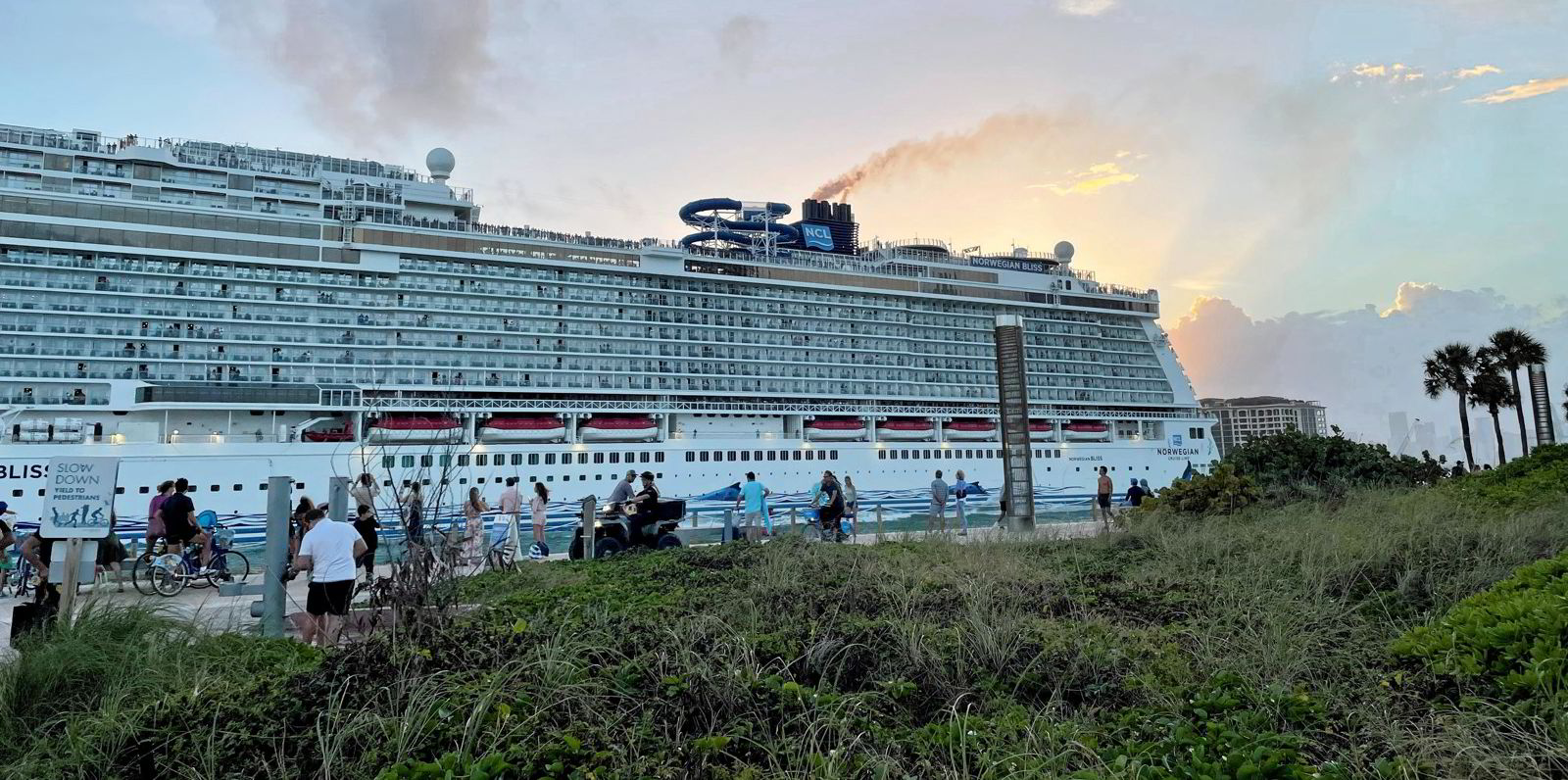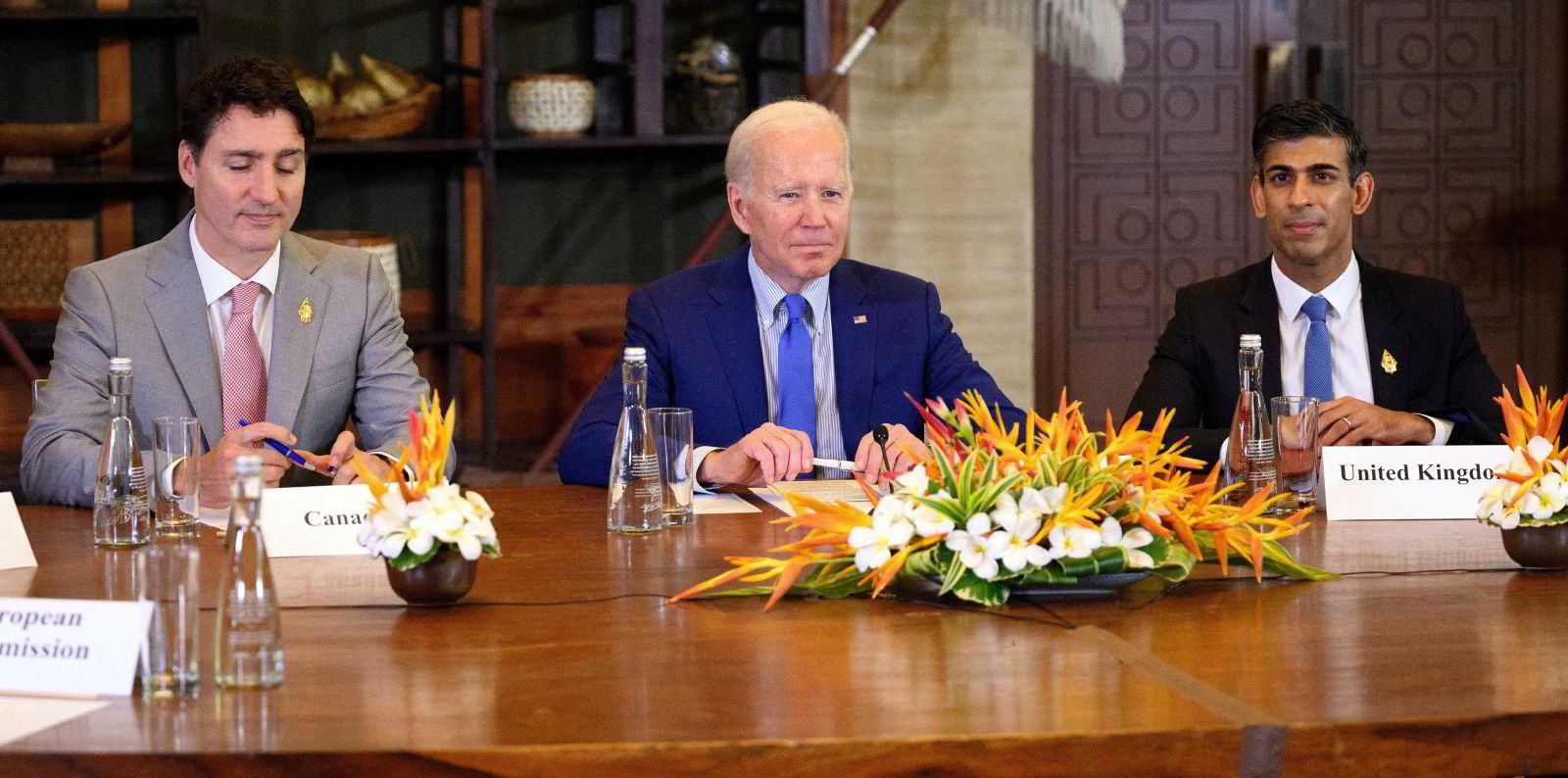At least six countries have called on the International Maritime Organization to adopt ambitious targets to slash shipping’s greenhouse gas emissions well before 2050.
The proposals ask the global shipping regulator to adopt a 37% cut in greenhouse gas emissions from shipping in 2030, compared to a 2009 baseline.
And they would target a 96% slash in 2040, on a path to reaching zero greenhouse gas emissions no later than 2050.
Canada, the US and the UK filed one proposal laying out the tough interim targets ahead of a key working group meeting, with another proposal lodged by the Marshall Islands, Solomon Islands and Vanuatu.
They come as the IMO is gearing up to revise its greenhouse gas strategy at a key meeting in July of the Marine Environment Protection Committee.
Member states had already been increasingly gravitating toward a goal of zero or net-zero greenhouse gas emissions in 2050, which would represent a significant upping of ambition from the IMO’s current target calling for a 50% cut by the middle of the century.
TradeWinds has previously reported how IMO delegations have also expressed a willingness to adopt interim targets.
In their new submission, the delegations from Washington, Ottawa and London said their proposed targets for 2030, 2040 and 2050 are consistent with the Paris Agreement’s goal of limiting global temperature rise to 1.5C above preindustrial levels.
Feasible goals
And they said the target are feasible, if urgent action is taken this decade.
“Time is of the essence,” the US, UK and Canadian delegations wrote.

Their proposal specifies that that the targets involve greenhouse gas emissions, not just CO2. And they said the emissions should be measured on a lifecycle or well-to-wake basis, meaning that fuels’ emissions will be calculated all the way up the supply chain.
The three countries also proposed setting ratcheting up targets for cutting shipping’s greenhouse gas intensity, technically known as “emissions per transport work”, to a 65% reduction in 2030 and a 98% cut by 2040.
Zero-emission fuels
And they want at least 5% of the global fleet operating on zero- or near-zero-emission fuels in 2030.
The proposals came as the Clean Shipping Coalition, made up of environmental groups, proposed tougher targets: cutting global shipping emissions by 50% by 2030.

The alliance sought to remind IMO delegations of the importance of the 1.5C global heating target, just fractions of a degree over today’s global 1.2C
In a submission to the IMO, the group wrote that even transitory rises above 1.5C can significantly increase the risk of pushing the climate past a dangerous tipping point.
‘Tipping point’
“Once the tipping point process is initiated, even by a temporary global warming overshoot, a cascading ripple effect starts, and is effectively impossible to stop,” the coalition said.
Not all countries’ IMO delegations have lined up behind more ambitious greenhouse gas targets.
India, for example, warned against setting targets after 2030, urging the IMO to focus on what is achievable.

Any enhanced level of ambition would require a rapid scaling up of affordable renewable energy, the country’s delegation said, as it pointed to constraints in building out infrastructure to deliver that.
“The shipping industry will have to compete with other, land-based, industry sectors like cement, energy, fertiliser, etc, to source its low- and zero-carbon fuels from the same supply pool that is outside the control of the shipping industry,” India said.
____________
Podcast: The long and winding road to shipping’s e-fuels revolution
Fuels that are made from electricity are called e-fuels, and they offer a tantalising prospect for a shipping industry looking to decarbonise. If produced with hydrogen made from renewable electricity, they can be zero carbon all the way up the fuel supply chain.
But the Green Seas podcast reports that green e-fuels are not in abundant supply and they are expensive.
Click here to listen to the podcast, or subscribe on Google Podcasts, Apple Podcasts, Stitcher, Pandora, Spotify and Soundcloud.
____________
Trafigura’s Olivi and Greek manager Zachariadis cross swords on ship efficiency
With frustration among shipping players rising only a few weeks after the global Carbon Intensity Index was introduced to score ships on their greenhouse gas emissions, ideas on how best to revise it in 2026 are swirling.
Harry Papachristou reports that Trafigura’s global head of wet freight, Andrea Olivi, weighed in to the debate, arguing that the index should be based on the Energy Efficiency Operational Indicator (EEOI) rather than on the Annual Efficiency Rate (AER) used currently.
“We need to change the current format,” Olivi told Capital Link’s 13th Annual Greek Shipping Forum in Athens.
But Panos Zachariadis, technical director at Greece’s Atlantic Bulk Carriers and a member of Bimco’s marine environment committee, poured cold water on the idea.
The EEOI is so volatile, the Greek manager said, that it resembles “a random number generator”.
____________
‘Unfair to everyone’: Greek shipowners set their sights on amending the IMO’s intensity index
Adding to the chorus of Carbon Intensity Index critics is the Union of Greek Shipowners, which threw its weight behind calls for amendments to the IMO measure.
Given the shortcomings of the gauge, it is good that ships that fail to comply with it will not be punished during the transitional period until 2026, when it is set to be revised, union president Melina Travlos said during the group’s annual general assembly.
“In the end, it [the regulation] is unfair to all ships,” Travlos said, announcing that the UGS board has set up an internal special committee to “highlight the weaknesses of the measure”.



